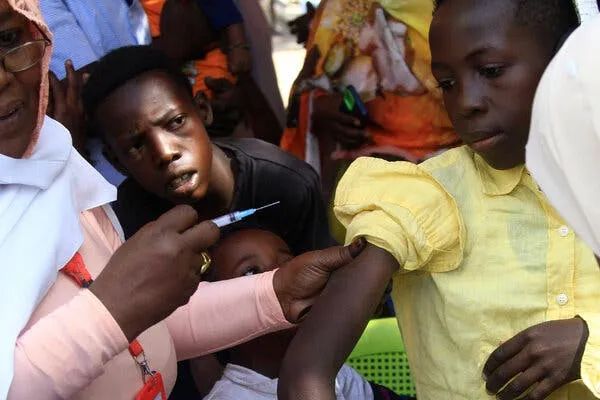Search for information
Trump Administration's Plan to Cut Gavi Funding Sparks Global ConcernsTrump Administration's Plan to Cut Gavi Funding Sparks Global Concerns
April 15, 2025, 3:35 pm EDT

The Significance of Gavi: The Cornerstone of Global Health
The Far - reaching Impact of the US Funding Cut
- Decline in Children's Vaccination Rates and Rise in Disease Mortality: Gavi estimates that if the US stops funding, 75 million children will be at risk of diseases due to the inability to receive vaccines in the next five years, and 1.2 million children may die as a result. In particular, highly infectious diseases such as measles and polio are likely to cause large - scale outbreaks in poor areas if there is a lack of sufficient vaccine coverage.
- Increased Risk to Global Health Security: Infectious diseases do not confine themselves to a particular country or region. Insufficient vaccination not only affects the health of developing countries but also increases the risk of large - scale global disease outbreaks. For example, the global strategic stockpiles of vaccines for Ebola, cholera, and other diseases will be affected, which may delay the process of responding to epidemics and thus endanger global public safety.
- Difficulty for Other Major Donors to Fill the Funding Gap: Currently, many European countries are reducing their foreign aid budgets due to economic pressure, and Japan is also facing fiscal challenges due to the depreciation of the yen. After the US withdraws from funding Gavi, it may be difficult for other donors to quickly fill this huge funding gap, resulting in the breakdown of the vaccine supply chain and affecting the normal operation of the global vaccination program.
Political and Legal Disputes
How to Address This Challenge?
- Strengthen International Cooperation and Seek Alternative Funding Sources: Besides traditional donors, emerging economies such as China and India can play a greater role in the global vaccine supply system. In addition, Gavi can also attract social capital from enterprises, charitable foundations, and others through public - private partnerships to fill the funding gap.
- Promote the Coordinated Response of Multilateral Mechanisms: As key organizations in global health governance, institutions such as the World Health Organization (WHO) and the United Nations Children's Fund (UNICEF) should strengthen coordination. In the case of Gavi's funding shortage, they should try their best to maintain the supply of basic vaccines for children in developing countries.
- Enhance Vaccine Production and Distribution Efficiency through Technological Innovation: By optimizing the vaccine manufacturing and distribution processes, improving vaccine production efficiency, and using digital technologies to enhance supply chain management, the impact of reduced funding can be alleviated to a certain extent. For example, measures such as adopting new low - cost vaccine production technologies and strengthening regional vaccine stockpile mechanisms can reduce the difficulty for developing countries to access vaccines.

Old Spitalfields Market: A Gastronomic Haven in East London
Old Spitalfields Market: A Gastronomic Haven in East Londonmore

Is Amanda Bynes, the Former American Sweetheart and Sexy Starlet, Set to Make a Comeback?
Is Amanda Bynes, the Former American Sweetheart and Sexy Starlet, Set to Make a Comeback?more

A Mutant Against All Odds? The new Fantastic Four.
A Mutant Against All Odds? The new Fantastic Four.more

'How to Train Your Dragon 2' live-action movie in the works
'How to Train Your Dragon 2' live-action movie in the worksmore

Botswana Golden Grand Prix 2026 to Be Upgraded as Precursor to World Relays
Botswana Golden Grand Prix 2026 to Be Upgraded as Precursor to World Relaysmore

Disney Releases New Concept Art for 'Fantastic Four: First Steps'
Disney Releases New Concept Art for 'Fantastic Four: First Steps'more

Irish Internet Medical Device Solutions Provider FIRE1 Secures $120 Million in Strategic Financing
Irish Internet Medical Device Solutions Provider FIRE1 Secures $120 Million in Strategic Financingmore

Kit Harington Hints at Lack of 'Eternals' Sequel and MCU Return
Kit Harington Hints at Lack of 'Eternals' Sequel and MCU Returnmore

